
Emergent Tokyo 2025: A New Chapter in the India-Japan Growth Story
Since its inception, 3one4 Capital’s Emergent program has been a platform for high-intent, immersive portfolio engagement that connects a select group of our portfolio companies with market-leading institutions. Previous editions in Singapore, Japan, and Mumbai have convened key stakeholders across innovation, finance, and policy, demonstrating how India’s startup ecosystem can integrate meaningfully into global supply chains and strategic markets. In Tokyo once again, the Emergent program reinforced its core belief: the most durable institutions of the future will be co-authored across borders.
India and Japan share a deep relationship rooted in trust, shared democratic values, and long-term strategic alignment. As the tectonic plates of the global economy shift, their partnership is becoming more critical than ever, defined not only by historical goodwill, but by a growing confluence of capital, capability, and conviction.
At Emergent Tokyo 2025, hosted in collaboration with Mizuho Bank and Universal Materials Incubator (UMI), a select group of India’s most pioneering startups showcased their vision to Japan’s leading institutions. Held at Mizuho Bank’s Tokyo headquarters, the event saw over 120 focused engagements across 53 institutions, each one a step forward in creating the next chapter of Asia’s economic story.
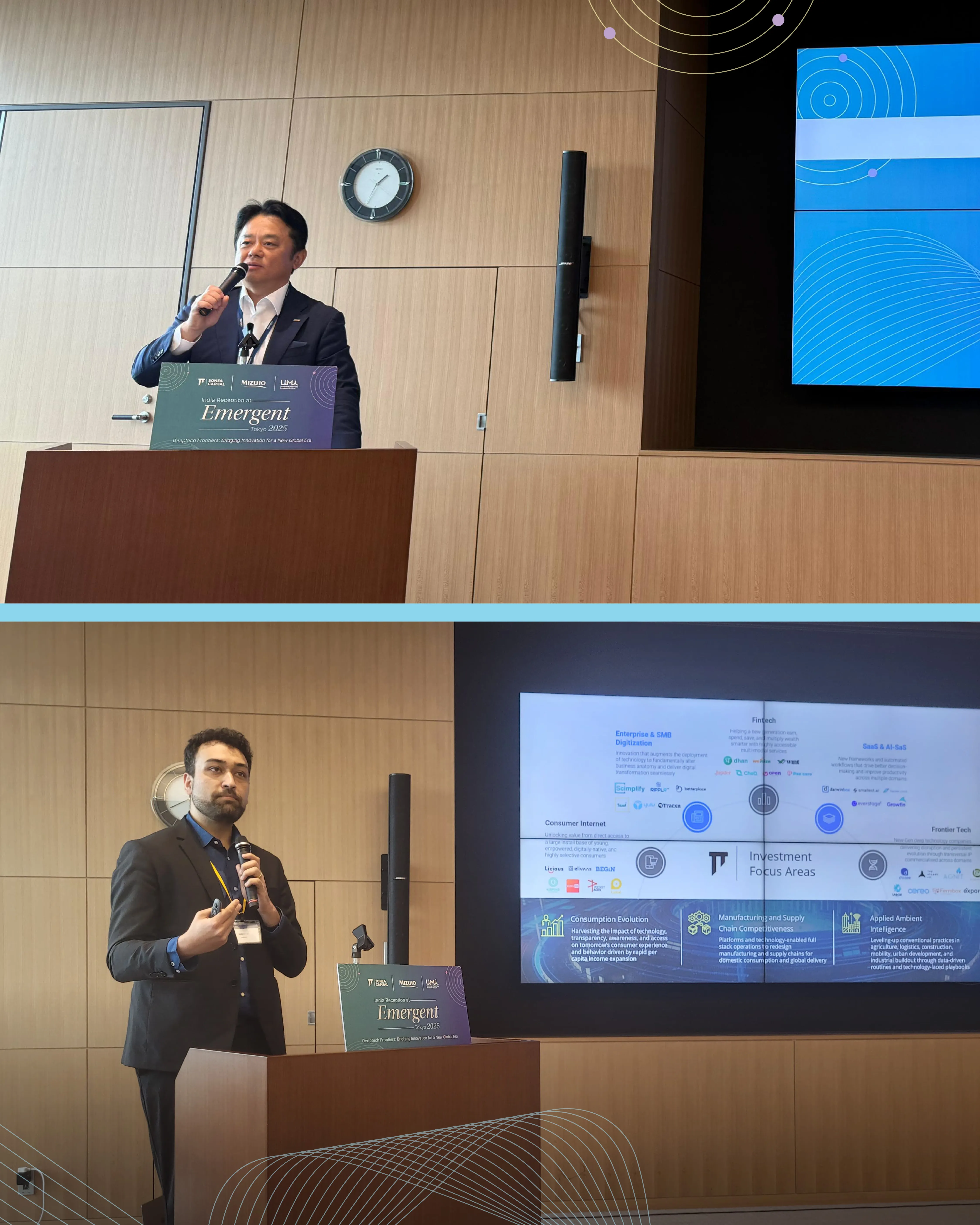
Opening Remarks: Shared Purpose, Complementary Strengths
In his welcome address, Masahiko Kato, President & CEO of Mizuho Bank, underlined the enduring strategic alignment between India and Japan. As he highlighted, Japan’s investments in India have long reflected a belief not just in India’s market potential, but in its political stability, demographic advantage, and economic scale. Today, that commitment finds new ground in India’s fast-formalising economy, growing consumer class, and its expanding global relevance.
This message of optimism was echoed and expanded by Pranav Pai, Founding Partner and CIO at 3one4 Capital. His keynote offered a sweeping perspective on India’s transformation.Pranav outlined the structural shifts propelling the country forward, where rising per capita income, broad-based financial inclusion, and a demographic dividend are intersecting with deeptech innovation and world-scale digital infrastructure. India, he emphasised, is at a pivotal inflection point, moving from a consumption-led growth story to one defined by IP creation, capital efficiency, and global scalability. What emerges is a compelling case for long-term investment: a high-aspiration, high-velocity economy that is evolving into one of the most strategically significant markets in the world.
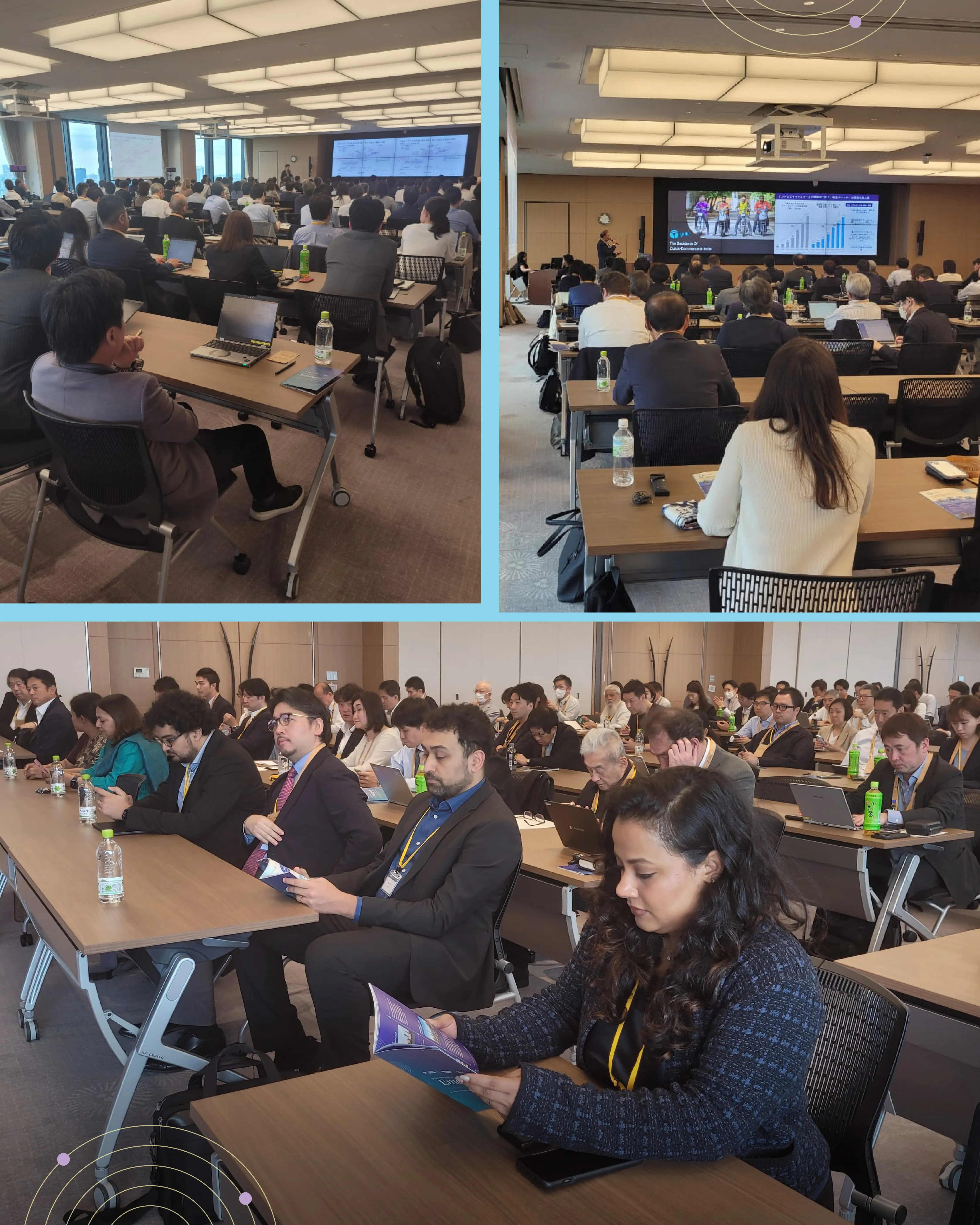
India’s Innovation Flywheel Is in Motion
India’s emergence as a high-aspiration, high-scale innovation economy is no longer a forecast, it’s visible in the data:
- Pre-tax corporate profit has surged to 13.5% of GDP, among the highest in emerging markets.
- 377M Gen Z and 900M internet users are powering bottom-up consumption and participation.
- India now ranks #3 globally in patent filings and #4 in scientific publications. This has catalysed a new wave of science-backed startups creating core IP in semiconductors, biomanufacturing, energy storage, and healthcare.
- India's digital rails, including UPI and Aadhaar, are not only the world’s most inclusive fintech infrastructure but also its fastest-growing.
The convergence of consumption, connectivity, and capital efficiency is turning India into one of the most investable economies globally. They form a reinforcing flywheel where consumption, capability, and capital efficiency work in tandem to produce world-scale outcomes.
Keynote Address - Shosuke Kiba
Shosuke Kiba’s (Managing Partner at Universal Materials Incubator (UMI)) keynote offered a sharp perspective on Japan’s evolving approach to frontier technology investment. Kiba-san shared UMI’s thesis on the convergence of materials innovation, industrial infrastructure, and digital intelligence, highlighting areas where Japanese industrial depth and Indian entrepreneurial agility can unlock shared value. What stood out in his remarks was not just the case for collaboration, but the framework for how to do it. From co-investment and joint ventures to shared IP development and cross-border manufacturing platforms, Kiba-san outlined a roadmap for how Japanese institutions can work with India not as a supplier, but as a strategic peer in the next wave of industrial innovation.
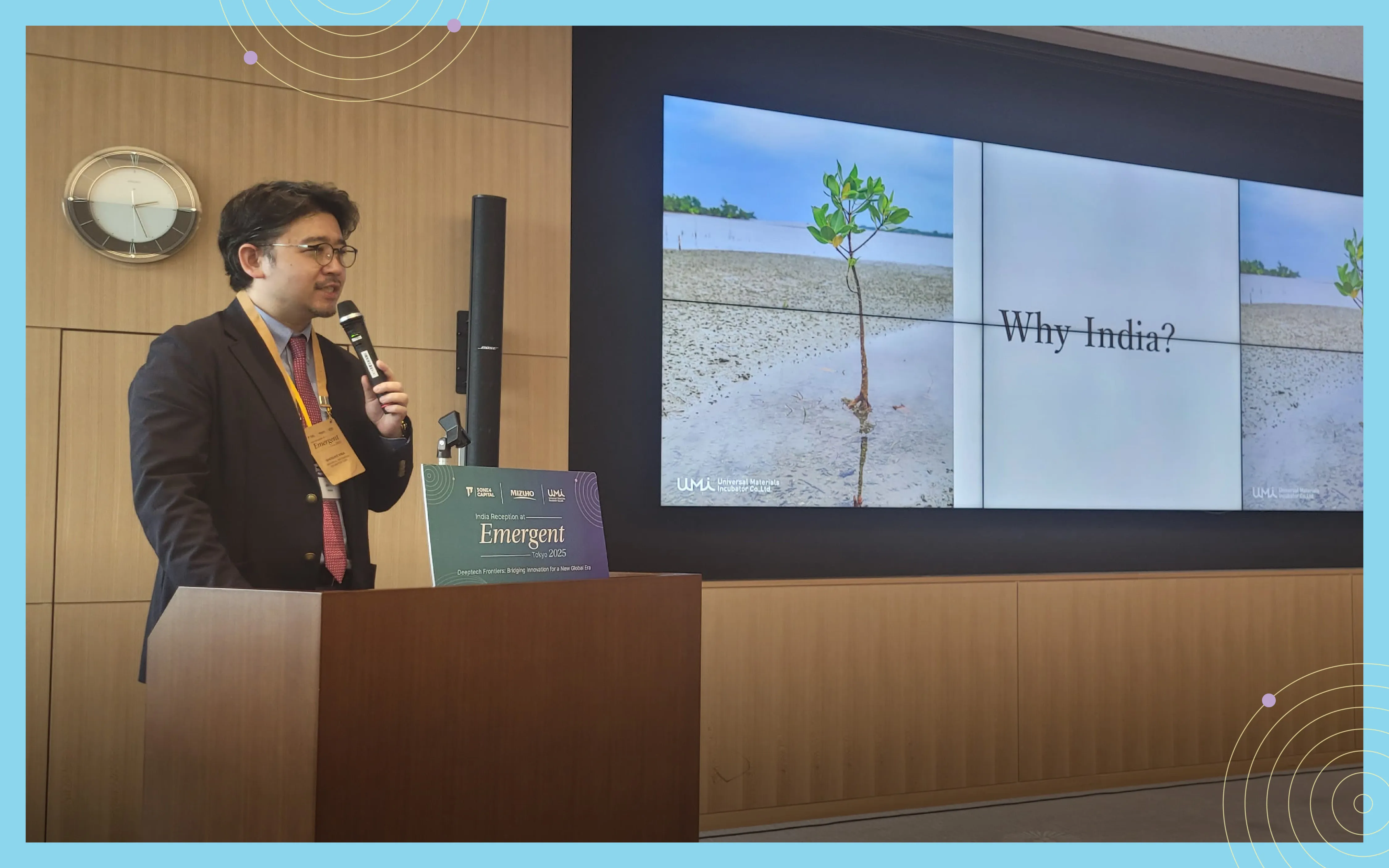
The Emergent Format: Context, Capital, and Collaboration
The audience then heard from 3one4 portfolio companies that embody the future of deep science, digital infrastructure, and sustainable industrial growth. The strength of the Emergent program lies in its structure, a format designed to translate macro conviction into meaningful, long-term collaboration. In Tokyo, the showcase unfolded across multiple high-intent sessions.
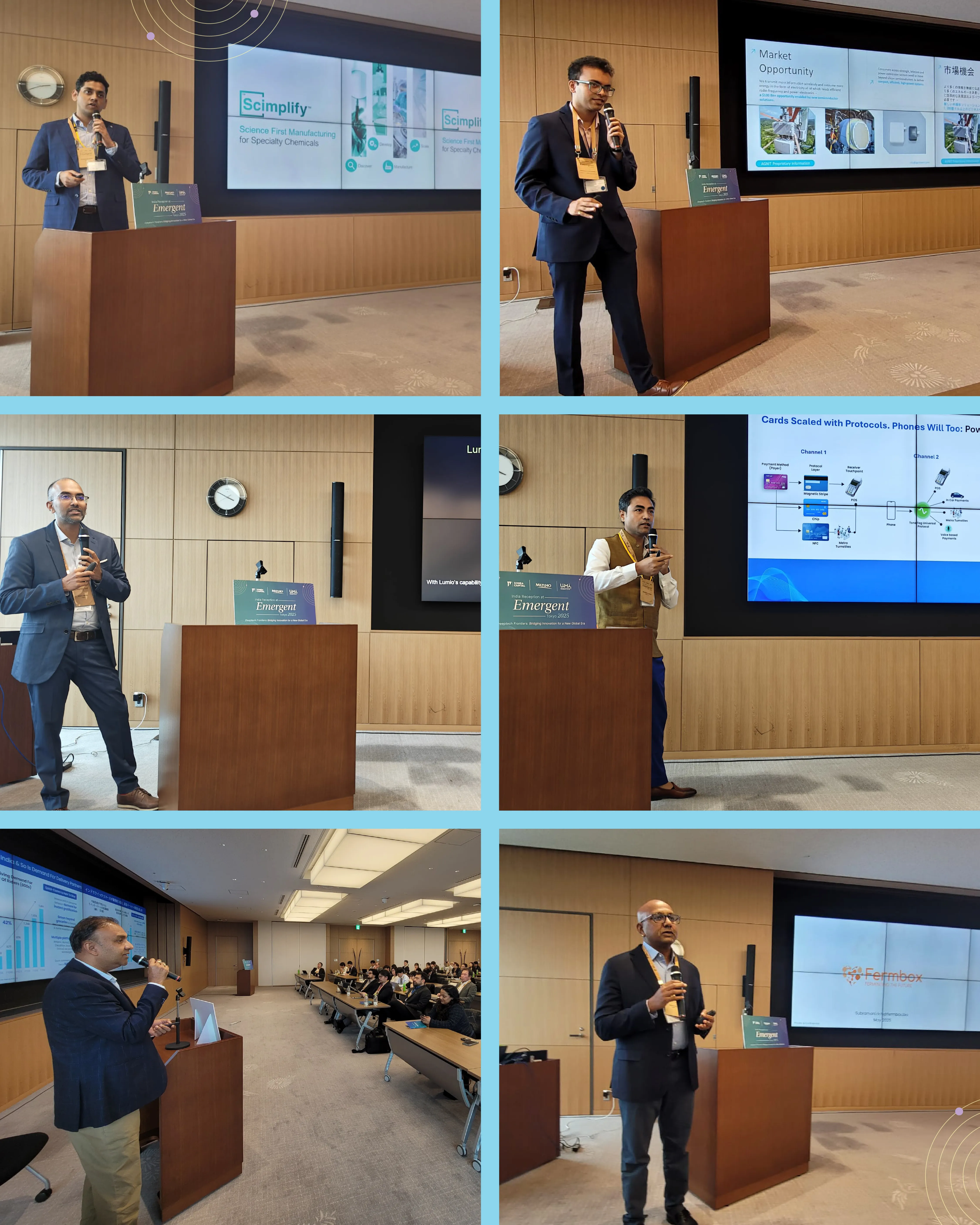
Scimplify is building the backbone for India’s specialty chemicals sector. In a market defined by deep fragmentation and opaque supply chains, Scimplify combines proprietary R&D with a tech-first sourcing and distribution platform. The company has mapped over 300 datapoints per factory across 250+ Indian manufacturing partners, covering everything from chemistry capabilities to regulatory compliance. With 500+ enterprise customers across 18 countries and a joint venture with UMI now operational in Japan, Scimplify is unlocking a new category of cross-border collaboration in advanced manufacturing.
Agnit is India’s first Gallium Nitride (GaN) semiconductor company, with an end-to-end stack spanning GaN wafers, components, and modules for strategic and telecommunication sectors. Spun out of IISc and backed by over a decade of academic research, Agnit addresses global demand for high-performance RF and power devices used in 5G, defense systems, satellites, and electric vehicles. At Emergent, Agnit showcased how it is closing critical gaps in India’s semiconductor supply chain while creating high-value IP that aligns with Japan’s leadership in materials science and advanced electronics.
Lumio is a new breed of Indian consumer electronics company. They're dedicated to solving a growing problem: a market where competition on price alone is resulting in saturation with products lacking differentiation. Currently, the market suffers from a lack of innovation, with outdated hardware and software leading to poor performance and customer dissatisfaction. This leaves Lumio with a significant opportunity to address this gap and build the next-generation consumer tech company, offering cutting-edge products to today’s modern, aspiring Indian consumer.
ToneTag is reimagining the future of offline digital payments through sound. Its deeptech protocol enables ultra-secure, contactless transactions using proprietary audio signals, requiring no internet, NFC, or QR codes. The system is hardware-agnostic and already deployed across POS systems, wearables, and smart speakers. ToneTag has built a chip that embeds this capability into consumer devices, opening new pathways for financial inclusion, hyperlocal commerce, and voice-led user experiences in low-connectivity environments.
Yulu, India’s largest shared electric micro-mobility platform, has built an end-to-end EV ecosystem optimised for dense urban infrastructure. With over nine years of operational history and partnerships with industry leaders like Bajaj and Magna, Yulu combines purpose-built EVs, swappable battery infrastructure, and a data-driven fleet management platform. It is now scaling rapidly across multiple Indian cities while laying the foundation for exportable EV and battery tech stacks, designed for affordability, modularity, and high-frequency usage.
Fermbox Bio is building Asia’s next-generation biomanufacturing platform, developing microbial fermentation-based alternatives to traditionally animal-, plant-, or petrochemical-sourced ingredients. From industrial enzymes to high-performance fragrances and dyes, Fermbox is vertically integrated across strain development, process optimisation, and distributed manufacturing. Its first commercial plant in western India is now live, and the team is actively expanding to Southeast Asia. Fermbox’s model resonates deeply with Japan’s need for supply chain resilience in materials and food-tech.
Each company showcased more than just product innovation; they presented validated business models, global traction, and a clear readiness to collaborate with Japanese corporates across co-manufacturing, product development, distribution, and IP co-creation. Together, they reflect the breadth and depth of India’s startup ecosystem and its alignment with Japan’s industrial priorities.
Institutional Perspectives: Japan’s Strategic Lens
The session from Katsumi Onishi (Senior Manager, Global Strategic Advisory Department, Mizuho Bank) brought critical context to the day’s discussions. The team shared findings from their ongoing research and engagement with Japanese corporates, many of whom are now recalibrating supply chains, deepening exposure to emerging markets, and searching for new vectors of growth beyond China.
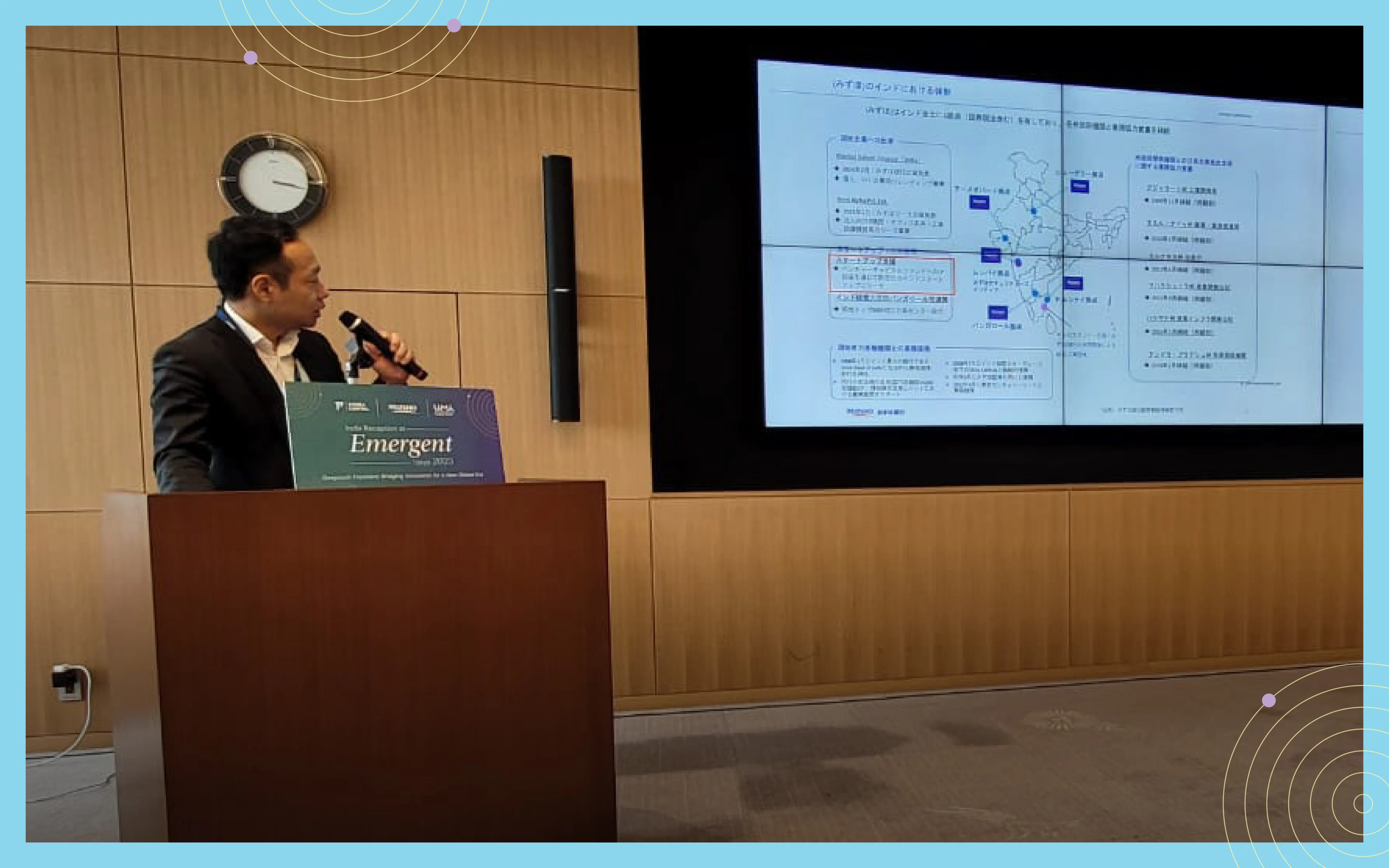
India's startup ecosystem is now deeply intertwined with its national growth story. With $500B+ in value created, over 120,000 startups, and 200+ expected unicorns by 2030, Indian innovation is scaling both domestically and globally. This momentum is matched by Japan's industrial depth and long-standing trust in Indian capability.This makes Japan a natural ally. With its history of frontier innovation, institutional depth, and deep respect for long-term value creation, Japan brings precisely the strengths India now seeks to partner with. Whether it’s Suzuki catalyzing India’s automobile sector or today’s partnerships in deep tech, biomanufacturing, and energy infrastructure, the Indo-Japanese corridor is being redefined, from aid to alignment, from manufacturing to innovation.Strategic institutions like Mizuho Bank and UMI are laying the rails for the next phase of this partnership, backing founders, scaling platforms, and accelerating the co-creation of value.
Closing Note: Institutions That Transcend Cycles
Siddarth Pai | Founding Partner & CFO, 3one4 Capital
In his closing reflection, Siddarth reminded the room that as the global order becomes more multipolar, and more unpredictable, resilience will not be built in isolation, but in collaboration.
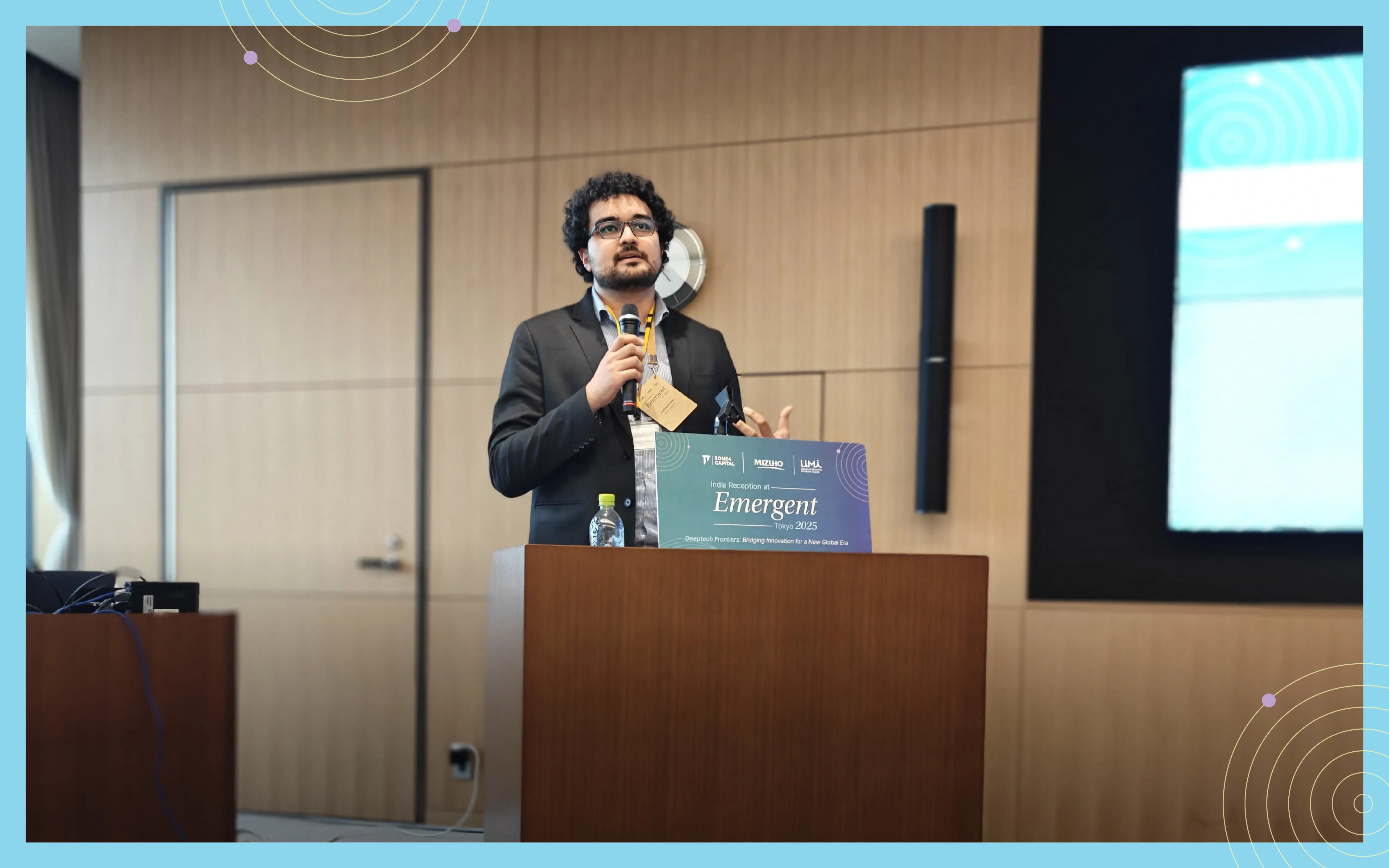
He invoked a Japanese proverb: “When three people meet, a new wisdom emerges.” This, he said, perfectly captures the spirit of the partnership between 3one4 Capital, UMI, and Mizuho Bank.
The collaboration announced at Emergent Tokyo 2025 is not a transaction. It is a commitment to scale innovation across borders, cycles, and sectors, anchored in values, aligned by vision.“India is not just the world’s largest market,” he noted, “It’s the world’s deepest well of aligned ambition.” Emergent exists to channel that ambition - into partnerships that endure, and into institutions that lead.














